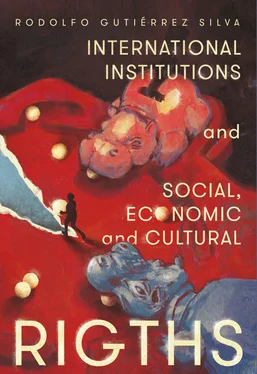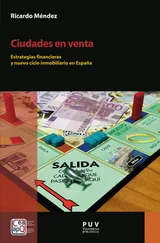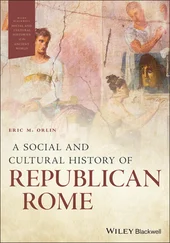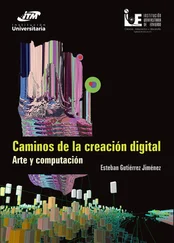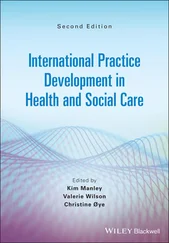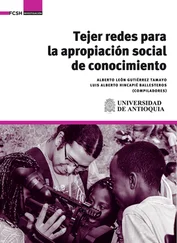Perhaps, because of a lack of support from the international community, these institutions have also been characterized by low budgets, and this has affected its financial sustainability threatening its existence. This is reflected in the number of cases or projects that the Committees of the United Nations can handle. For instance, Art. 1 of the Optional Protocol to the International Covenant on escr, approved by the General Assembly on 10th December 2008, and that entered into force on 5th May 2013, establishes the competences of the Committee to accept and consider communications19. It states that “…a State Party to the Covenant that becomes a party to the present Protocol recognizes the competence of the Committee to receive and consider communications as provided for by the provisions of the present Protocol”. Despite this, very few cases or communications have been presented to this mechanism to protect the escr of the most vulnerable. In 2017, for example, the un Committee on escr found Spain responsible for evictions without providing suitable alternative accommodation since such actions violated art. 11 of the International Covenant. In a similar vein, access to Justice is limited to the victims of human rights violations. Thus, despite that the Optional Protocol has been recognized as a mechanism to protect the escr of individuals20, nevertheless, many victims of numerous violations are not able to claim their rights because of a lack of accessibility. Lastly, international institutions have also been affected by a lack of institutional capacity. Institutional capacity not only entails resources, time, knowledge, and systems, but also capabilities as well as inter-institutional coordination. One of the main lessons that we might learn from the experience of the COVID-19 pandemic is that we have to improve the level of coordination among international organizations not only to find a solution in the long term, but also in the short one, through effective strategies that might, at the same time, ensure the welfare of individuals. Put it simply, the world was not prepared to respond efficiently and effectively against this virus. Contrary to this, many countries decided to distance themselves from other countries claiming their sovereignty21. This was triggered by a political transformation in many countries such as Brazil, usa, and Nicaragua where their leaders decided to deny the potential threats of the virus. This particular attitude could have also generated a massive increase in the death of many people worldwide. On the background, international institutions were not coordinated enough to respond quickly to this global pandemic, and as a result of that, many countries were also competing against one another to obtain masks, protective equipment, ventilators, and also vaccines.
These variables of fragmentation, structural dysfunctions, lack of resources as well as the lack of institutional capacity due to a lack of coordination mentioned in the previous analysis are not only present in the universal system, but also in international financial institutions. The Bretton Woods conference that took place in New Hampshire did establish the World Trade Organization (wto), the International Bank for Reconstruction and Development and the International Monetary Fund. While the World Bank was created in order to finance different projects that promoted economic development, the International Monetary Fund “was to be a supranational body essentially doing two things: it would regulate the rates at which currencies were exchanged among member countries and it would help ensure international stability by making loans at times of crisis in member countries balance of payments” (Peet, 2009, p. 66). In a similar vein, the International Labor Organization22, and Multilateral Banks for example the Inter-American Bank of Development and the Asian Development Bank were created to contribute to increase the welfare of individuals. Along with these institutions, a new legal framework has been promoted. however, it is well known how these international institutions not only have affected entire communities but also States and Regions generating many violations of human rights. During the globalization process, the world is facing many threats including climate change, as well as nuclear wars, therefore there are many challenges. However, the contribution of these institutions of global governance is very minimal. One of these challenges is the rise of the new populist governments23 that are threatening the existence and influence of these international mechanisms. For instance, President Trump, not only withdrew the country from the Paris Agreement in 2017 since, according to him, it would affect us sovereignty (Goldstein & Greenberg, 2018), but also, in 2020, he withdrew the us from the World Health Organization, affecting the lives of many people worldwide. In a similar way, the us has also encouraged other countries to reduce their budgets allocated to the United Nations in order to influence more international organizations. Indeed, we still live in a world of uncertainty and the world is facing many challenges, inequality is rising, many countries have perceived rise in levels of inequality while, on the opposite side, technological change, artificial intelligence and automation are threatening many jobs worldwide as well as wage levels in different economic sectors. Therefore, the challenge that also arises here is how to strengthen and protect such institutions from new threats and risks.
As a result of this, the central question that this book tries to answer is what are the main challenges that international institutions are facing and how to strengthen them in order to ensure the protection of Economic, Social, and Cultural Rights? Regrettably, much of the literature in the field of global governance, international institutions, and its impact on human rights still tend to focus on the achievement of indicators of development or results (measured mainly in economic terms). This entails that the number of studies that contribute to the discussion from this type of perspective is still very limited. In addition to that, very few scholars that study the topic of International Organizations and human rights have yet analyzed this phenomenon from a different perspective. Consequently, this book is looking to contribute by promoting a different one. Undoubtedly, this will have an impact on the operational process of such institutions, and at the same time, it will promote debate at the international and national level in order to empower people as well as governments so that they might have a voice in the transformation of international mechanisms from a rights-based approach. The objective of the book, then, is to evaluate the different challenges international institutions face and how to strengthen them in order to ensure the protection of escr. More specifically, it seeks to detect different patterns in two types of actors that include international financial institutions and the institutions of the universal system such as the un Refugee Agency. This book, at the same time, will attempt to provide a series of recommendations so that international institutions might have a stronger role in the warrant and fulfilment of rights. For this, the book is presenting different analytical frameworks by evaluating relevant topics that are affecting modern society.
The evaluation of the different challenges affecting International Institutions in the protection of escr is indeed a very complex and difficult task due to the diverse range of institutions that have been created. As a result of that, the author has chosen a selection of specific topics where such challenges might be found in order to generalize some level of abstraction. The case studies mainly deal with escr generally including the Right to Social Security and also procedural obligations of States such as Accountability and Transparency. While some cases evaluate directly the role of international institutions other cases try to evaluate how, in practice, such actions are operationalized in practice by States. Moreover, the evaluation of the challenges affecting international institutions must take into account not only the internal processes of such agents, but also the effects of such actions operationalized by States through different policies. Thus, in our perception, this type of approach provides us with a multilevel analysis that might reveal more patterns in different spaces.
Читать дальше
